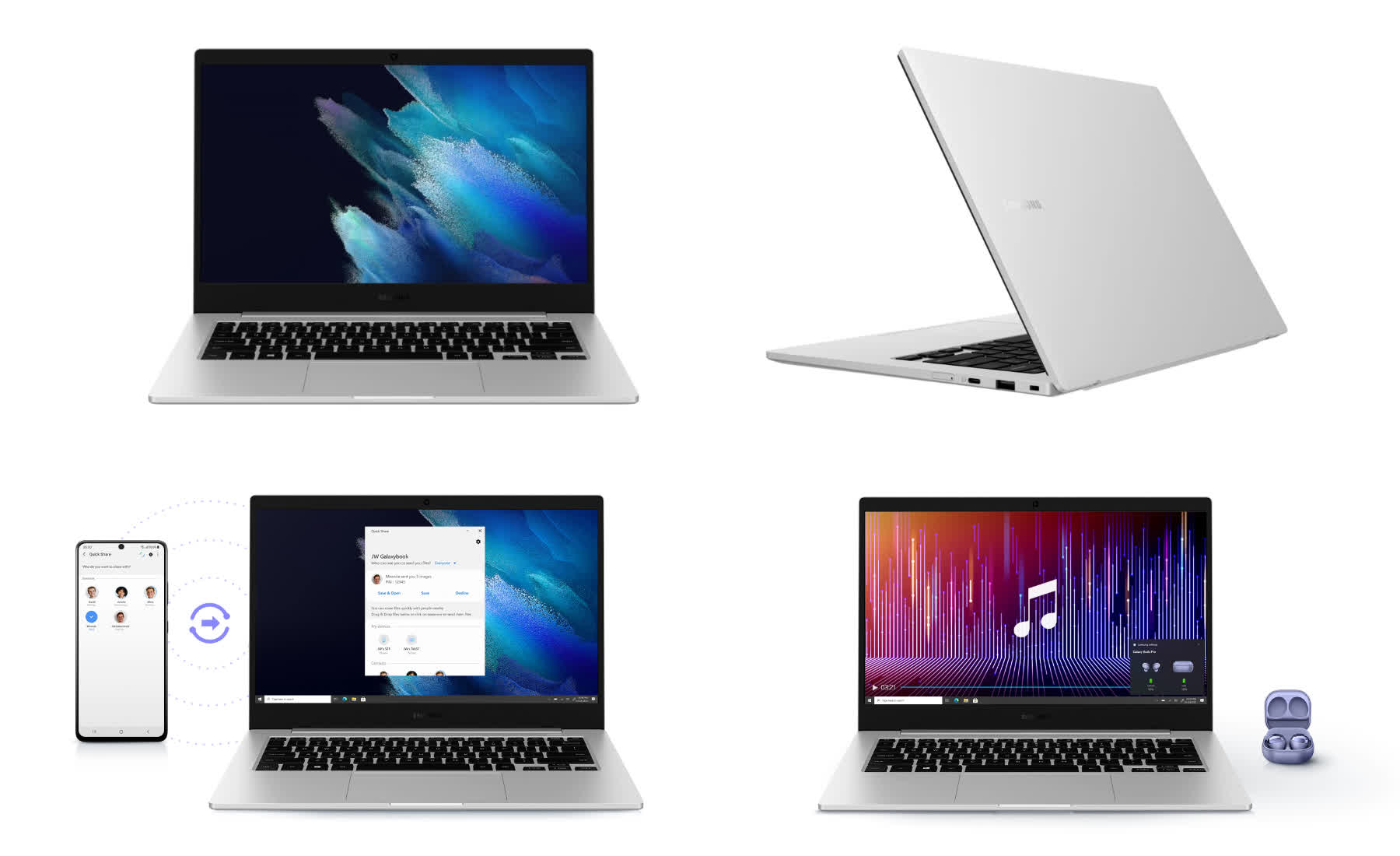In a nutshell: Samsung has added two Snapdragon-powered models to its Galaxy Book series of laptops. Although they carry the same 'Go' moniker as seen on Microsoft's 2-in-1 Surface Go, Samsung's bigger, 14-inch thin-and-light laptop features a traditional clamshell design and uses Qualcomm chips. These include the Snapdragon 7c Gen 2 on the base model and the more powerful, 5G-capable Snapdragon 8cx Gen2 chip on the higher-end variant.

We recently saw Qualcomm's announcement of its new Arm-based compute platform for entry-level, affordable laptops called the Snapdragon 7c Gen 2. Among the first devices to feature this SoC is Samsung's Galaxy Book Go series.
Powered by Windows 10, Samsung's latest Chromebook rival should be of interest to students and users with modest requirements and budgets. Starting at $349, Samsung's Galaxy Book Go comes with a 14-inch 1080p TFT display mounted on a 180-degree hinge, 4GB RAM, 64GB of eUFS storage, and Windows 10 Home. It can also be specced with Windows 10 Pro and an 8GB/128GB storage configuration.

Several Samsung ecosystem features are supported as well, including Galaxy Buds sharing, Quick Share, TV Plus, Smart Switch and SmartThings
The fanless chassis weighs 1.38 kg (3.04lbs) and measures just under 15mm thick. Samsung claims up to 18 hours of battery life for the Go's 42.3Wh cell, and has included 25W fast charging via USB-C. In terms of connectivity, the base Go features Wi-Fi 5, Bluetooth 5.1, 2 x USB 3.2 Type-C ports, 1 x USB 2.0 Type-A, a 720p webcam, a Nano SIM card slot (for the optional LTE variant), a microSD card slot, and a 3.5mm combo jack.
There's also a more powerful, 5G variant of the Galaxy Book Go that packs a beefier Snapdragon chip (8cx Gen2) with Wi-Fi 6. Although Samsung hasn't announced pricing for this model, it packs nearly identical specs (display, design, battery, ports) as the non-5G Go, so expect to pay a slight premium. The standard Go variant will be available to buy in select markets starting June 10, while the 5G version is expected to arrive later this year.
https://www.techspot.com/news/89920-samsung-launches-galaxy-book-go-series-affordable-arm.html